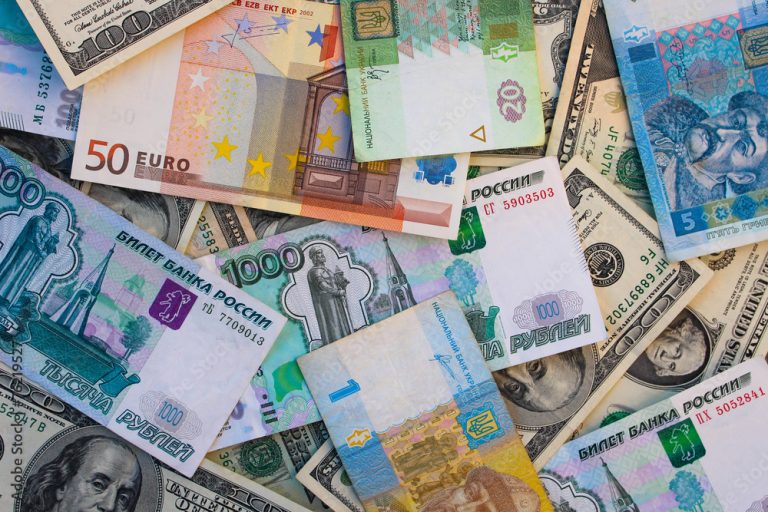
This may sound like a surprising or even absurd statement, but it is true. Africa’s total financial wealth is estimated at $41 trillion, while the rest of the world’s wealth is $39 trillion. How is this possible, you may ask?
The answer lies in the concept of illicit financial flows (IFFs), which are defined as “money illegally earned, transferred or used”. IFFs include tax evasion, money laundering, corruption, smuggling, and other criminal activities. According to UNCTAD, Africa loses about $89 billion per year due to IFFs, which is equivalent to 3.7% of its GDP. This means that more money is leaving Africa than entering it through official channels.
Africa is a continent of immense wealth and potential. According to a recent report by the African Development Bank, Africa’s total financial wealth is estimated at $41 trillion, which surpasses the rest of the world’s wealth of $39 trillion. This means that Africa has more resources and assets than any other region in the world, and that it has the opportunity to leverage them for its own development and prosperity.
Register for Tekedia Mini-MBA edition 19 (Feb 9 – May 2, 2026): big discounts for early bird.
Tekedia AI in Business Masterclass opens registrations.
Join Tekedia Capital Syndicate and co-invest in great global startups.
Register for Tekedia AI Lab: From Technical Design to Deployment (next edition begins Jan 24 2026).
However, this wealth is not evenly distributed or utilized across the continent. The report also reveals that only 20% of Africa’s wealth is held by Africans themselves, while the rest is owned by foreign investors, multinationals, and governments. Moreover, much of Africa’s wealth is locked in natural resources, such as oil, gas, minerals, and land, which are often exploited by external actors without benefiting the local communities or the environment. As a result, Africa faces many challenges, such as poverty, inequality, unemployment, conflict, and climate change.
The impact of IFFs on Africa’s development is devastating. IFFs deprive African governments of much-needed revenues to invest in public services, infrastructure, education, health, and social protection. IFFs also undermine the rule of law, governance, and democracy, as they create incentives for corruption and violence. IFFs also distort the structure and composition of African economies, as they favor sectors that are easy to conceal and transfer, such as extractive industries, over sectors that are more productive and inclusive, such as manufacturing and agriculture.
IFFs also affect African economies in various ways. For instance:
IFFs reduce the domestic savings and investment rates, which are essential for economic growth and diversification. IFFs increase the dependence on external financing, which exposes African countries to external shocks and debt crises. IFFs erode the tax base and distort the allocation of public resources, which affects the quality and quantity of public goods and services. IFFs create an unfair competition between formal and informal sectors, which discourages innovation and entrepreneurship. IFFs encourage capital flight and brain drain, which deprives African countries of human and financial capital.
Some examples of IFFs are:
The Panama Papers, which revealed how wealthy individuals and corporations used offshore entities to hide their assets and avoid taxes. The Niger Delta oil theft, which involves the illegal extraction and export of crude oil by armed groups and criminal networks. The gold smuggling in Zimbabwe, which deprives the government of millions of dollars in royalties and taxes. The timber trafficking in Madagascar, which threatens the biodiversity and livelihoods of local communities.
What can be done to stop this massive hemorrhage of resources from Africa? UNCTAD proposes a comprehensive and coordinated approach that involves both source and destination countries of IFFs. Some of the measures include:
Strengthening national and regional capacities to prevent, detect, and prosecute IFFs. Improving transparency and accountability in the management of natural resources. Enhancing international cooperation and exchange of information on tax matters. Closing loopholes and gaps in the global financial system that facilitate IFFs. Promoting fair and equitable trade and investment policies that benefit African countries. Supporting African countries in recovering and repatriating stolen assets.
These strategies require strong political will, collective action, and partnership among all stakeholders, including African governments, civil society, private sector, diaspora, and development partners. By harnessing its wealth for its own development, Africa can achieve its vision of a prosperous, peaceful, and integrated continent. By tackling the challenge of IFFs, Africa can unleash its full potential and achieve its development goals. There is more money in Africa than outside Africa, but it needs to stay in Africa for the benefit of its people.



